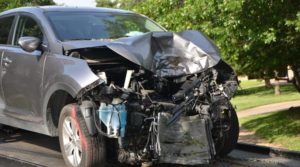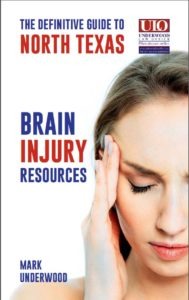
If you have been involved in a car accident, then it may have been highly traumatic for you. If you were injured, though, then it’s all the more serious, and you’ll need to seek adequate medical attention immediately. For instance, if the accident produced a violent impact and you hit your head, then you might have received a concussion.
What is a Concussion, and How Might You Know if You Have Received One?
A concussion is a form of brain injury that medical science has learned more about in recent years. They range from mild to severe. They can happen under a variety of different circumstances. The chances of you sustaining a more serious concussion go up if you hit your head with a significant amount of force. Car accidents are far from the only way that you might get concussed, but they are one of the more common ones.
When you are concussed, the brain bounces back and forth and strikes the inside of your skull. This can cause bleeding, bruising, or the tearing of nerve fibers. Concussions are considered as Grade I, II, or III, depending on their severity.
In a car accident, such an event might occur if your head struck the steering wheel or the dashboard, for example. Any time that you were rear-ended, t-boned, or were involved in a head-to-head collision, a concussion could be the result.
For a free legal consultation, call (972) 535-6377
What Are the Symptoms of a Concussion Caused by a Car Accident?
The symptoms of a concussion include loss of consciousness, sensitivity to light (photophobia), confusion, amnesia, and fatigue. Ringing in the ears (tinnitus), flashes of light, changes in mood, irritability, agitation, headaches, and migraines are also possible. You may also feel anxious, nervous, or sad, with no discernible reason for it.
These sensations might start directly after the car accident, or they may begin to take effect some time afterward. Be on the lookout, and if you experience any of them, don’t ignore them. An untreated concussion, if it’s on the more serious side, could be life-threatening.
Generally, what happens is that you can suffer what is called second-impact syndrome. This occurs if there is another blow before the brain has had time to heal. If your equilibrium has been negatively affected by a car crash, then you might become dizzy and fall in the days that follow if you never got yourself checked out by a doctor.
How are Car Accident Concussions Treated?
In minor cases, patients may be prescribed rest and prescription medications. They may also be advised to take over-the-counter medications like Advil and Aleve. More severe cases may require physical therapy, brain scans, or drug therapy to minimize pain and prevent complications.
If you’ve sustained a head injury in a vehicular accident, reach out to us so we can discuss your case. You should not delay in doing so, since the faster you can start the litigation process, the sooner you can receive financial compensation if you were not at fault where the accident is concerned.
Our law firm in McKinney, Texas serves all of Dallas and Fort Worth, including Allen, Frisco, Plano, and McKinney. We also have a Huntington, West Virginia attorney office which serves all of West Virginia.
For both these offices, call our toll-free number 844.UNDERWOOD (844.863.3796) for a free consultation or send an email. Se hablaespañol.
Call or text (972) 535-6377 or complete a Free Case Evaluation form





